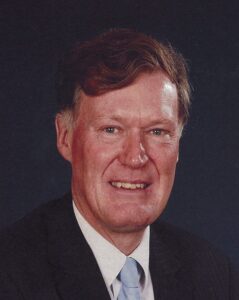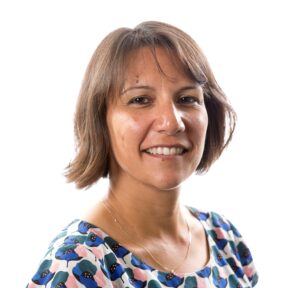The FPM mission is to advance the science and practice of pharmaceutical medicine. The best way to advance pharmaceutical medicine is through collaboration with others in medicine and healthcare, which needs to be built on trust and understanding of what we do and how we do it. If elected, my focus would be to ensure that FPM represents its members needs and concerns and, through representing its members externally professionally and credibly, brings pharmaceutical medicine into the mainstream of medicine and healthcare.
The past year has really shown that FPM members have relevant expertise to address unmet medical need. This is going to remain important going forward as health systems across the world rebuild and refocus in the wake of the pandemic and the transition of COVID to becoming endemic. We need to work to support all patients across all conditions, not just COVID and I truly believe that pharmaceutical medicine can make a big difference to how to achieve this going forward.
However, the importance of pharmaceutical medicine and the work of FPM members is not consistently recognised by the outside world. We have all seen and heard about academic researchers discovering medicines but the work of pharmaceutical medics can be unrecognised. We also know that trust and credibility are critical. FPM sets robust professional ethical standards and we need to ensure that those outside FPM understand and value the specialty through their interactions with FPM. I was part of the group who set up the partnership between FPM, Brighton and Sussex Medical School and the ABPI with an aim to help support medical students in their understanding about medicines – this positive innovative collaboration is one we need to build from.
Through my previous work at ABPI, as the Executive Director of Research, Medical and Innovation, I have first-hand experience of working within a membership organisation. I understand the importance of ensuring that members feel understood, supported and represented, across the breadth of membership and I would bring that to the FPM. It is particularly important for FPM to understand from members the priority needs and how best to work with members in a caring and supportive way. This needs to be done in an inclusive way and must engage the diversity of membership across the many aspects of pharmaceutical medicine and the many ways in which members work – from drug discovery through to medical affairs and from working in large companies, CROs, SMEs, regulators to those working independently. If elected, I would be the first senior officer in FPM who has been through the PMST programme and gained a Certificate of Completion of Training (CCT) so I understand the demands of the programme on trainees. I am committed to supporting members at all stages of their career. I have worked with members on strategic, policy and operational issues bringing different perspectives together to present a clear set of recommendations and I would apply this to advancing the practice of pharmaceutical medicine for the future.
As the current Chair of the Policy and Communications group, and a former member of the Office of the Board of Examiners (OBoE), I have first-hand experience of the work that the FPM does to support pharmaceutical medicine, for its members and for the wider life sciences community and the public. If elected, I would build on this by engaging with stakeholders. Through my work with ABPI, I have extensive experience of representing members and working with senior levels of government, MHRA, HRA, NIHR, AMRC, NHS Research Scotland, NHS England, MRC, UKRI, AMS and other stakeholders, within the UK and internationally. I have bought together stakeholders around critical topics and worked to bring pharmaceutical medicine and the work of the industry into policy discussions on issues ranging from clinical research, women’s health, antimicrobial resistance, patient and public involvement, Brexit, COVID, multimorbidity and others. This has given me the opportunity to appreciate the breadth of the amazing work of our specialty, the challenges we face and why it is critical that pharmaceutical medicine has a voice.
Therefore if elected, I would:
a. Bring my experience of working in a membership organisation to ensure the diversity of FPM members are understood and supported;
b. Raise the profile of FPM in order to ensure FPM members’ needs, concerns and expertise are represented externally, continuing the development of the FPM as a recognised source of authority;
c. Develop FPM’s collaborations with stakeholders to enable FPM and members to contribute pharmaceutical medicine expertise to address key issues.




